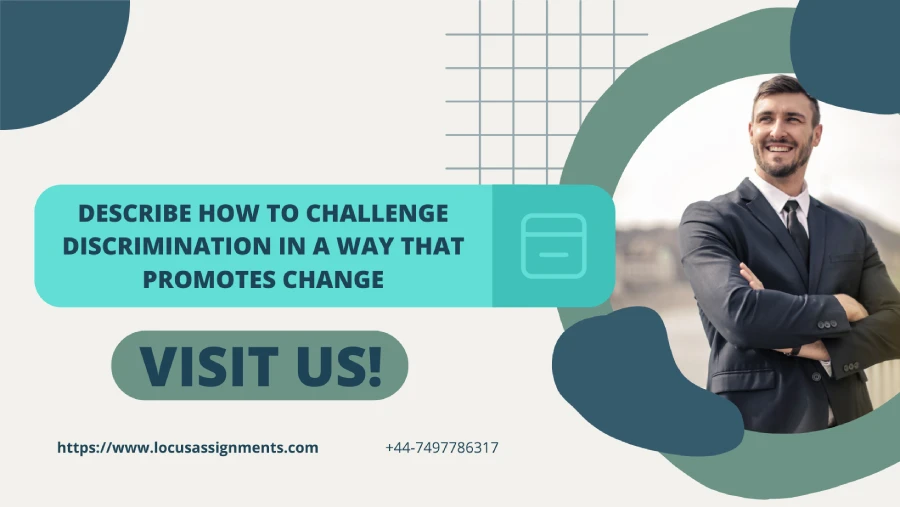Describe how to challenge discrimination in ways that promote change

3.3. Describe how to challenge discrimination in a way that promotes change
Course – Level 3 diploma in care (RQF)
Unit 4 – Equality and Inclusion in Care Settings
L.O. 3 – Be able to promote diversity, equality, and inclusion.
Challenging discrimination in ways that drive positive action for change involves a considered, informed and collaborative manner – especially in care settings where equality, respect and inclusion are the primary ethos.
To start, it is so important to challenge discrimination early and appropriately. Responding early – overt or covert behaviour – indicates discriminatory behaviour is always wrong. Engagement with the person in a calm, non-confrontational manner appears to work best – having conversations, asking reflective questions, or drawing attention to harms – to encourage reflection and self-awareness and hopefully prevent further discriminatory behavior in the future.
Next, education and awareness. A lack of understanding, stereotypes or unconscious bias influence discrimination. Interventions that provide a gentle layer of education – for example, explaining why some comments or actions are problematic, explaining the value of diversity, and utilising language to promote this – allow people to reflect and hopefully effect longer-term change.
Also, it is also important to support and empower affected individuals. Supporting these individuals, validating their feelings and reassuring them will help to build trust. It is also important to support them to have their say on the issue; this could be in the form of reporting processes or advocacy. Your support can ensure that their worry is heard and, if necessary, acted upon.
On a larger and formal level, consider advocating for systemic or institutional change. Examples might include developing inclusive policies, rewriting existing procedures that may be inadvertently discriminatory or offering equality and bias training sessions. It is important to have strong and explicit support from leadership in creating a culture whereby equality is a practice, rather than just policy.
The building of communities and coalition work can progress the work you are doing. The work of being part of a group that acts collectively to challenge discriminatory norms can create a feeling of safety and solidarity and can also build responsibility and coherence as a group.
Finally, reflect on your practice. Think about your own attitudes and behaviours, how effective your actions were, and how you might develop your practice further. Reflection is an important means of continuing personal and cultural development in care environments.
These actions help to not only respond to incidents but also develop a resilient and inclusive culture where equality truly exists.
If you’re working on care-related coursework and need expert support, Locus Assignments – your trusted assignment helper UK – can provide tailored help with your assignments in UK, ensuring you meet academic standards while building a strong understanding of equality and inclusion.
Assignment help?
Expert Assignment helper in your service indeed.
Fast • Reliable • Expert Support
Upload NowOther Assignments